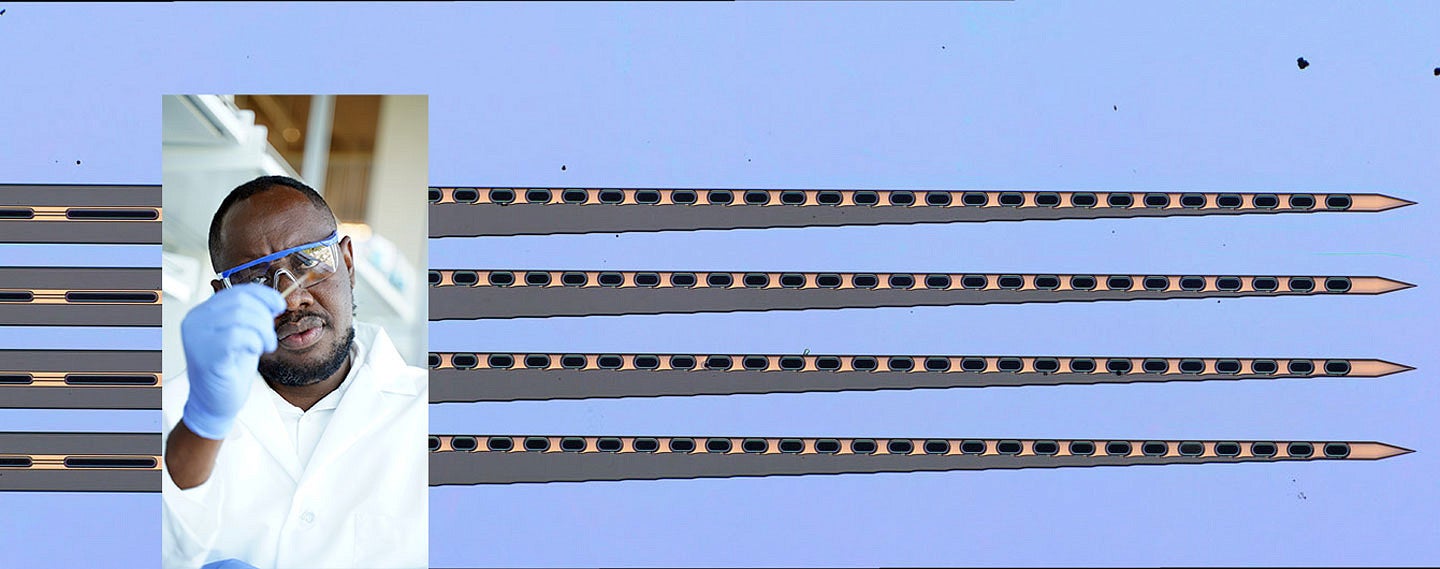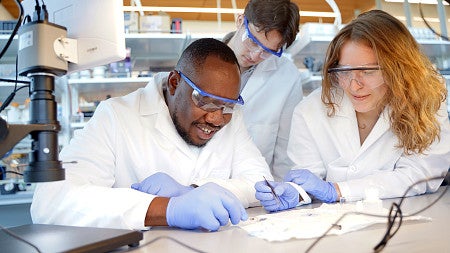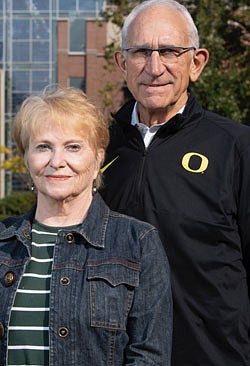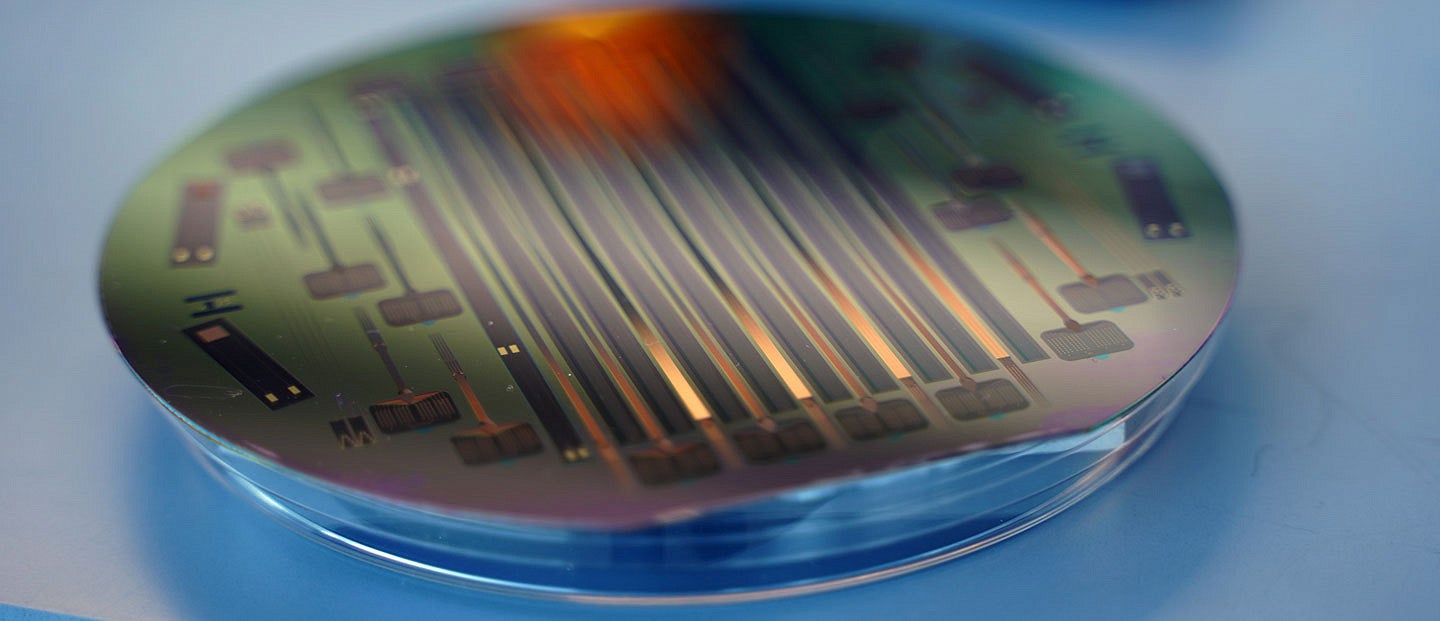
Microfabrication expert and neuroengineer Felix Deku is the inaugural recipient of Betsy and Greg Hatton Assistant Professorship of Neuroengineering
Through his research and innovation activities in the Department of Bioengineering at the Phil and Penny Knight Campus for Accelerating Scientific Impact, Felix Deku is reimagining the future of neural interface technologies with the potential to target vision restoration, epilepsy, Parkinson’s Disease, paralysis and other conditions. The Betsy and Greg Hatton Assistant Professorship of Neuroengineering, the first of its kind in the Knight Campus Department of Bioengineering, will enhance Deku’s capacity to explore new ideas and push the boundaries of his team’s work.

“I am deeply humbled and honored to be the recipient of this professorship and immensely grateful to the Hattons for their generous support and belief in the potential of my research,” Deku said. “This position is a privilege and a responsibility that I accept with great enthusiasm, and I look forward to contributing to the continued growth and success of the field of neuroengineering in Betsy and Greg’s names.”
Deku and his team are experts in creating small microelectrodes that can both record and stimulate the electrical activity of neurons simultaneously. Neurons communicate through rapid electrical signals, and any interference in this activity is associated with disorders such as epilepsy, Parkinson's and Alzheimer's disease. The microelectrode interfaces that Deku and his team are developing are capable of delivering accurate and localized electrical stimulation, which can reactivate neurons that are inactive or not communicating effectively. This targeted and precise approach to electrical stimulation could also help minimize the side effects commonly observed with the latest generation of implantable neurostimulators.

Researchers in the Deku Lab rigorously evaluate various thin-film materials, including silicon carbide, polymer films, and metal-oxide mixed conductors, to ensure that the electrical interfaces they develop are compatible with brain neurons. Fine-tuning the physical and electrical properties facilitates seamless integration of the implant within the nervous system, enhancing the recording and stimulation of electrical activity, thus making these implants valuable tools for researchers and clinicians, and promising for myriad disorders that lack durable and effective treatments.

Before joining the Knight Campus as an assistant professor, Deku held the position of chief technology officer at Braingrade, a startup dedicated to developing brain implant devices aimed at prolonging the lifespan of Alzheimer's patients. Additionally, he served as the director of microfabrication at Neuralink, a group committed to leveraging interfaces to enhance the quality of life for patients with various medical requirements.
Deku will hold the Betsy and Greg Hatton Assistant Professorship in Neuroengineering at the Knight Campus for three years. Established by UO alumni Betsy and Greg Hatton, the position provides financial support for ongoing projects and resources for the Deku Lab to continue its advancement in neural interfaces.
“As a family living with neurological and movement challenges, we are humbled and awed to provide support for the work of Dr. Deku, his team and the Knight Campus,” said Greg Hatton. “It takes a community of effort to find life changing solutions through bioengineering and we are very proud to be a part of the University of Oregon Community.”
Deku and his lab have already made significant progress in advancing the field of neuroengineering. The Betsy and Greg Hatton Assistant Professorship acknowledges those past efforts and highlights the importance and promise of the team’s future endeavors.
— Rachel Bedford, Jan. 11, 2024

